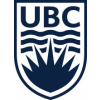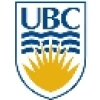Academic
Job Category
Faculty Non Bargaining
Job Title
Research Associate in 3D Human Tissue Bioprinting for Modeling Neurodegenerative Disorders
Department
Nygaard Laboratory Division of Neurology Department of Medicine Faculty of Medicine (Haakon Nygaard)
Posting End Date
September 25, 2024
Note : Applications will be accepted until 11 : 59 PM on the Posting End Date.
Job End Date
Sept 30, 2026
The position is expected to be filled by promotion or reassignment.
The compensation for this position is $85,00 per annum.
Job Summary
Situated the Djavad Mowafaghian Centre for Brain Health at the University of British Columbia the Post-Doctoral candidate will develop / design, implement and publish research studies related the cellular processes associated with Alzheimer’s disease (AD) and frontotemporal dementia.
Specifically, the position involves maintaining and advancing a robust protocol for 3D bioprinting of iPSC derived neurons, astrocytes, and microglia to study the pathophysiology of AD and FTD in a 3D environment.
In addition, methods of research including but not limited to : human induced pluripotent stem cells (hiPSC), cerebral organoids, CRISPR gene editing, transfections, imaging techniques, electrophysiology and biochemical / molecular biology techniques.
The candidate will have a strong teaching role for graduate, undergraduate and co-op students.
The position requires a strong research background in neuroscience and neuroscience techniques including iPSCs generation, differentiation, and maintenance, tissue culture, and confocal imaging.
The candidate must have a PhD, and at least 2 years of post-doctoral experience in advanced 3D bioprinting of hiPSC neurons using an extrusion-based bioprinter.
The candidate must further have advanced knowledge of bioink preparations, including those based on collagen.
Organizational Status
The successful candidate will work under the supervision of Professor Haakon Nygaard in the department of Neurology in the Faculty of Medicine.
Responsibilities will include, but are not limited to :
3D bioprinting of iPSC-derived tissues
Design and implement research studies and related programs, including planning, managing, producing and analyzing the data.
The candidate is expected to lead these efforts.
Communicate with wet lab scientists in the day-to-day activities including but not limited to the data collection, quality control, data cleaning, data analysis, and presentation.
Extensive use of induced pluripotent stem cell-derived cell types in experiments
Histology, biochemical analysis, -omics, and electrophysiology experiments of iPSC-derived tissues
Prepare manuscripts and oversee submission
Lead grant applications in the field of neurosciences
Maintain safe and clean lab spaces used
Mentor and teach graduate, undergraduate and Co-op students
Consequence of Error
The position requires research experience, excellent communication skills, tact, judgment, and discretion in working with various senior professionals and collaborating with internal and external agencies.
Errors in decision making may compromise the reputation of the PI’s, the research team, and their collaborators, and funding.
Requirements
PhD in the field of neuroscience or related field, and at least 2 years of post-doctoral training in hiPSC 3D extrusion-based bioprinting, Proven skills using hiPSCs studying the pathophysiology of neurodegenerative or other CNS disorders.
Additionally, strong analysis skills, ability to work professionally with colleagues, donors, and staff, and compliance with approved procedures and ethics regulations, publications in the area are an asset.
Benefits
Plan Group Number : 020605Member ID : your 7-digit UBC employee ID number, Need crisis counselling?, Call the TELUS Health at 1-866-424-0770 to chat with a counsellor.
Disclaimer, The benefits information on this website is provided as a descriptive summary only. While the University has endeavored to accurately reflect its benefit programs, policies and plans, the information on this website does not create any contractual or other rights between the University and its faculty and staff members.
To the extent that there are any conflicts or discrepancies between the benefits information on this website and the benefit plan documents (including group insurance contracts and benefit booklets) or any applicable collective agreement, employment agreement, or UBC policy, the benefit plan documents and collective agreement, employment agreement, or UBC policy will govern in all cases.




